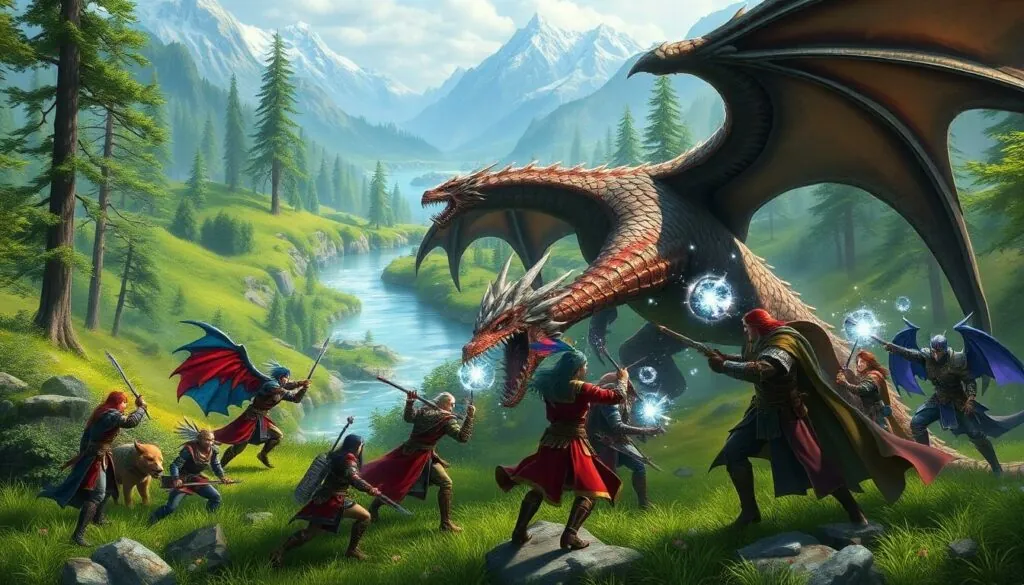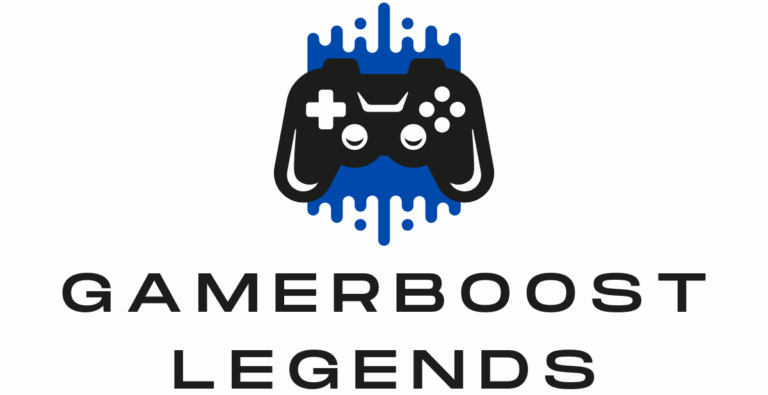Imagine diving into a world where dragons roam, epic battles unfold, and your character can wield a sword bigger than your house. Welcome to the realm of MMORPGs—Massively Multiplayer Online Role-Playing Games. These digital playgrounds invite players to escape reality and step into a universe filled with quests, friendships, and the occasional dragon barbecue.
Table of Contents
ToggleUnderstanding MMORPGs
MMORPGs immerse players in vast, dynamic environments where they can engage creatively and socially. Enthusiasts explore expansive worlds filled with potentially limitless adventures.
Definition of MMORPG
MMORPG stands for Massively Multiplayer Online Role-Playing Game. This genre allows thousands of players to interact in real-time, developing characters through various quests and challenges. Players create avatars that represent them, customize their appearances, and choose unique abilities. Game mechanics typically include leveling up, acquiring loot, and joining factions or guilds. Many MMORPGs feature intricate storylines, offering opportunities for players to shape their experiences collectively.
Key Features of MMORPGs
Key features define MMORPGs and distinguish them from other game genres. Real-time interaction enables seamless communication between players, fostering cooperative gameplay. Character development encourages personalization through skill trees, abilities, and gear. Expansive worlds invite exploration, with diverse environments ranging from sprawling cities to dense forests. Quests and missions provide engaging content, often leading to epic story arcs. Social features such as guilds enhance teamwork and create lasting friendships within the gaming community.
The History of MMORPGs
The development of MMORPGs spans decades, showcasing significant milestones in gaming history. They originated from early text-based games, which allowed players to explore virtual worlds through text commands and interactions.
Early Beginnings
MUD1, a pioneering text-based game launched in 1978, introduced multiplayer elements and set the stage for future MMORPGs. Players engaged in quests within a virtual world populated by fantasy creatures. Moreover, these early games laid the groundwork for graphical MMORPGs, inspiring developers to create richer, more immersive experiences. By the 1990s, titles like Neverwinter Nights emerged, offering graphical interfaces and expanding player interaction in online environments. These innovations marked a transition from text to graphics, attracting a larger audience and paving the way for the genre’s growth.
Evolution Over the Years
The late 1990s and early 2000s saw the release of iconic MMORPGs such as EverQuest and World of Warcraft. EverQuest introduced 3D environments, setting standards for graphics and gameplay mechanics. World of Warcraft later revolutionized the genre, boasting over 12 million subscribers at its peak. The introduction of regular expansions and updates kept players engaged, creating a thriving community. In addition, technological advancements led to improved graphics, user interfaces, and cross-platform functionality, enhancing player experiences. Through these developments, MMORPGs continued to adapt, shaping online gaming culture and maintaining popularity among gamers worldwide.
Popular MMORPGs
Numerous MMORPGs captivate millions of players worldwide. They each offer unique experiences and gameplay mechanics.
Notable Titles
World of Warcraft stands as a titan in the genre, attracting players with its vast lore and engaging quests. Final Fantasy XIV draws fans with its storyline and beautiful graphics. Guild Wars 2 emphasizes exploration and dynamic events. The Elder Scrolls Online integrates familiar lore from the Elder Scrolls series, enhancing immersion. Black Desert Online boasts impressive graphics and action-oriented combat. Each title showcases a distinct blend of gameplay elements that keeps players coming back.
Unique Elements of Each Game
World of Warcraft employs a rich narrative featuring expansive lore and regular updates. Final Fantasy XIV focuses on detailed storytelling and character relationships. Guild Wars 2 prioritizes player choice through dynamic events and flexible class systems. The Elder Scrolls Online introduces open-world exploration and familiar characters from the well-known series. Black Desert Online presents a unique real-time combat system and a detailed crafting mechanism. These distinctive features contribute to the individual appeal of each game within the MMORPG landscape.
Gameplay Mechanics
Gameplay in MMORPGs revolves around two core elements: character development and social interaction. These systems work together to create rich, immersive experiences.
Character Development
Character development defines individual journeys in MMORPGs. Players create avatars and customize their appearances. They choose unique abilities and traits tailored to personal play styles. In many games, leveling up unlocks new skills and enhances attributes. Players engage in quests and challenges, earning experience points that contribute to overall progression. Furthermore, loot acquisition plays a critical role. Collecting items often leads to gear upgrades, boosting a character’s power. Various classes, roles, and specializations offer additional depth, allowing players to explore different gameplay strategies. Each decision significantly impacts a character’s evolution within the game world.
Social Interaction
Social interaction enriches the MMORPG experience. Players connect in real-time through various communication methods. Chat functions enable casual conversations and strategic discussions. Joining guilds fosters teamwork as players collaborate on quests, raids, and events. Finding allies becomes essential for tackling challenging content. Additionally, MMORPGs often include social features like trading, where players exchange items to enhance their gameplay experience. Friend lists and in-game events create opportunities for building lasting relationships in the gaming community. Such interactions form the backbone of many memorable moments within these expansive digital environments.
Advantages and Disadvantages
MMORPGs offer numerous benefits alongside potential drawbacks that players should consider.
Benefits of Playing
Community engagement ranks high among the advantages. Players interact in real-time, forming strong connections with others. Players access vast worlds that promote exploration and adventure. Character customization enhances individual play styles, making each journey unique. Quests and challenges provide a sense of achievement as players progress. Dynamic environments keep gameplay fresh, ensuring continuous enjoyment. Regular updates and expansions introduce new content, maintaining player interest. The balance of cooperative and competitive gameplay caters to varied interests, attracting a diverse audience.
Potential Drawbacks
Time commitment poses a significant challenge. Many games require extensive hours to level up and engage fully with content. Some players experience social isolation, as real-life interactions may decline in favor of virtual connections. Subscription fees can lead to financial burdens, especially with multiple games. In-game purchases often affect gameplay balance, creating advantages for paying users. Technical issues, like server instability, can disrupt the gaming experience. Additionally, the addictive nature of MMORPGs may lead to neglect in other responsibilities. Understanding these factors helps players make informed decisions about their gaming experiences.
Conclusion
MMORPGs offer a unique blend of adventure and social interaction that captivates millions. With immersive worlds and endless quests players find themselves deeply engaged in character development and community building. The genre’s evolution showcases its ability to adapt to technological advancements while maintaining core gameplay elements that resonate with fans.
Despite challenges such as time commitments and potential social isolation players continue to be drawn to the rich experiences these games provide. Understanding both the benefits and drawbacks equips players to navigate their journey in the vast digital landscapes of MMORPGs. Whether seeking epic battles or lasting friendships the MMORPG genre remains a cornerstone of online gaming culture.






